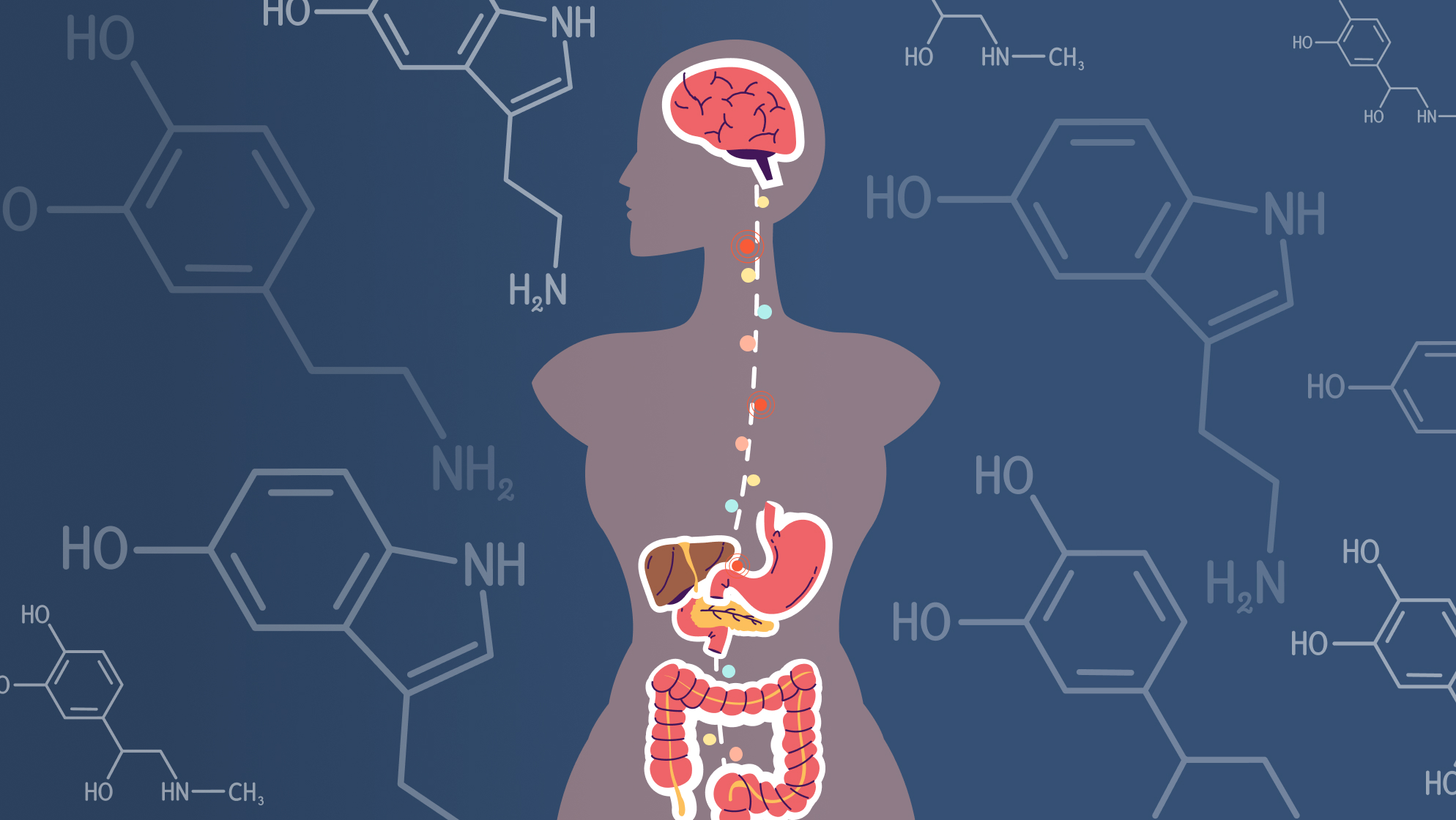
How Neuromodulators Work
Your gut and brain are connected through a complex system called the gut-brain axis. In some GI conditions, this communication becomes disrupted, leading to symptoms like:
- Abdominal pain
- Bloating
- Diarrhea
- Constipation
- And more!
The gut-brain axis plays a crucial role in regulating digestive functions, including motility and visceral sensitivity. Neuromodulators help to normalize communication by reducing pain signals between the gut and brain, which is especially important for people with increased visceral hypersensitivity.
Neuromodulators help regulate this connection, improving bowel function and reducing discomfort. Unlike their use for mental health, doses for GI symptoms are typically much lower, focusing on symptom relief rather than mood management. Neuromodulators are not addictive and typically do not cause changes in personality or mental functioning.
Benefits of Neuromodulators
Neuromodulators can:
- Reduce pain signals between the gut and brain
- Improve bowel patterns (both diarrhea and constipation)
- Decrease bloating and abdominal discomfort
These medications are often part of a comprehensive treatment plan, which may also include dietary adjustments, behavioral therapy, or other GI-targeted interventions.
What to Expect
Starting Treatment
- Your GI provider will prescribe a low dose tailored to your symptoms.
- These medications often take a few weeks to show noticeable improvements.
Follow-Up Care
- Close monitoring is essential. Plan to follow up with your GI provider within 10 days of starting the medication.
- Report any side effects, such as drowsiness, dry mouth, or dizziness, immediately.
Ongoing Use
- Many patients use neuromodulators for months or longer to manage symptoms effectively.
- Adjustments to dosage or duration may be made based on your response to treatment.
Safety and Monitoring
Neuromodulators are generally well-tolerated, but as with any medication, side effects may occur. Common side effects include:
- Mild drowsiness or fatigue
- Dry mouth
- Nausea
- Dizziness
Notify your provider immediately if you experience severe side effects or symptoms that worsen. Regular check-ins will help ensure the medication is working effectively for you.
Talk to Your Provider
Neuromodulators can be a valuable tool in managing your GI symptoms, but every patient is unique. If you have questions or concerns, reach out to your GI provider to discuss whether this treatment is right for you.
Remember: Always take medications as prescribed and never stop them abruptly without consulting your provider.
